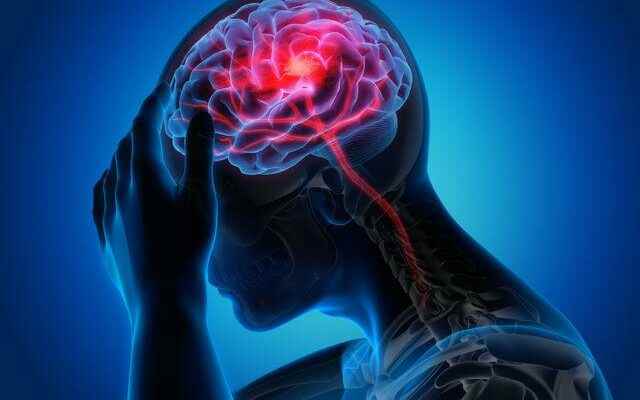Since 2008, the third week of March has been celebrated as Brain Awareness Week under the leadership of international organizations related to neuroscience, especially the Society for Neuroscience and Dana Foundation. In this special week, it is aimed to introduce neuroscience in the world better and to explain its importance. Üsküdar University NPİSTANBUL Brain Hospital Brain, Nerve and Spinal Cord Surgeon Prof. Dr. Mustafa Bozbuğa evaluated the effects of the Covid-19 pandemic, which has been in effect for two years, on brain health.
COVID-19 AFFECTED ALL SYSTEMS
Expressing that the Covid-19 pandemic, which has been going on for two years, undoubtedly affects our health negatively in many respects. Dr. Mustafa Bozbuğa said, “Covid-19, which is a systemic disease, affects all functional systems in the body, especially the lung-respiratory system, gastrointestinal system. Covid-19 also affects the central (brain and spinal cord) and peripheral (neural networks, peripheral nerves) nervous system with various mechanisms, and the involvement of the nervous system occurs in the clinic with many different clinical signs and findings. said.
FOLLOW-UP OF CHRONIC PATIENTS HAS BEEN DIFFICULT
prof. Dr. Mustafa Bozbuğa said, “In addition, the uncertainty and fear environment created by the pandemic and the psychological effects that arise as a result of the mandatory measures; disruptions in the diagnosis and treatment of other diseases with the prioritization of Covid-19 in the implementation of health services; With the follow-up and treatment of chronic diseases in the background, health problems becoming complicated and untreated, especially in the elderly population, have emerged as important public health problems. he said.
CORONAVIRUS REACHES THE BRAIN THROUGH ODOR ROADS
Noting that especially in the severe course of Covid-19, the clinical temporary or permanent nervous system involvement is seen in an average of 30% (ranges between 26-70% are reported) in the patient. Dr. Mustafa Bozbuğa said:
“The disease’s involvement in the nervous system consists either directly through the ACE2 receptors found in the brain cells as the coronavirus reaches the brain, or indirectly through various interactions and mechanisms that develop in the organism under the influence of the virus. The coronavirus reaches the brain especially through the olfactory pathways and shows its effect in the region related to the sense of smell and especially in the frontal lobe, limbic system, and brain stem.

Involvement occurs not only with the direct effect of the virus, but also with the immunological response against the virus; The cytokine storm that develops in Covid-19 is sometimes also effective in the head – brain tissue and allows the blood – brain barrier, which normally prevents entry into the brain tissue, to deteriorate and thus the disease to reach the brain; In these patients, there is a virus in the brain and cerebrospinal fluid, and the levels of various chemical active substances such as neuromodulators effective in the brain may change. In this case, viral diseases such as encephalopathy, for example acute necrotizing encephalopathy, secondary hemophagocytic lymphohistiocytosis occur with the brain and cerebral membranes being affected.
IT CAN OCCUR IN BRAIN vascular occlusion
prof. Dr. Mustafa Bozbuğa stated that there are signs and symptoms such as severe headache, high fever, impaired consciousness and coma, epilepsy attacks, loss of neurological function in the clinical picture, and added: and impaired oxygenation also affect brain functions. Another common neurological involvement in the course of Covid-19 is the disruption of blood coagulation mechanisms and cerebral vascular occlusions and infarcts. warned.
THESE SYMPTOMS OCCUR IN NERVOUS SYSTEM INVOLVEMENTS
prof. Dr. Mustafa Bozbuğa also said the following about the signs and symptoms that occur when the nervous system is involved:
“Depending on the mechanism of action and the degree of the disease, the clinical picture is usually severe headache, nausea and vomiting, smell and taste disorders, dizziness, cognitive and attention disorders, impaired consciousness, visual disorders, epileptic attacks, high fever, neurological function losses. – There are signs and symptoms such as paralysis, muscle pain, anxiety and depression, and severe psychiatric diseases.
